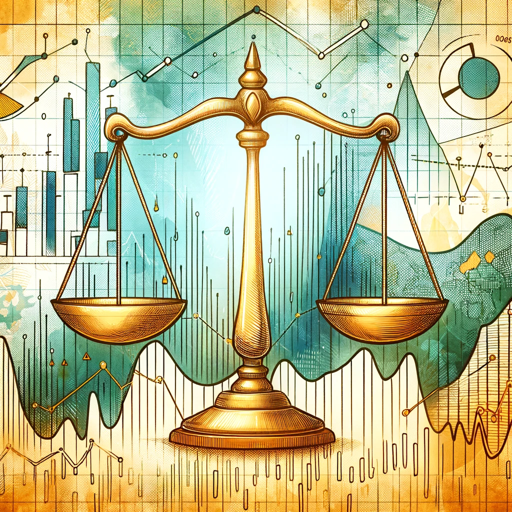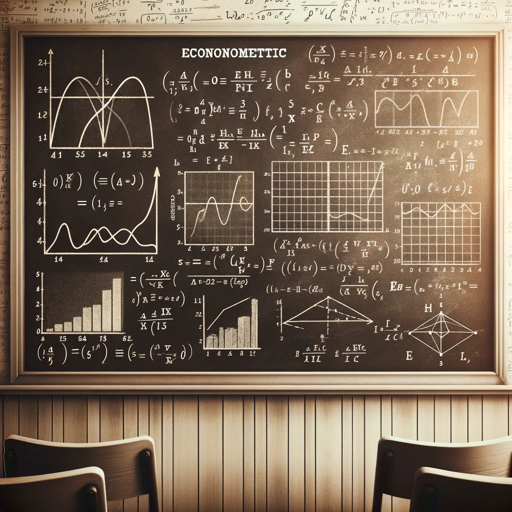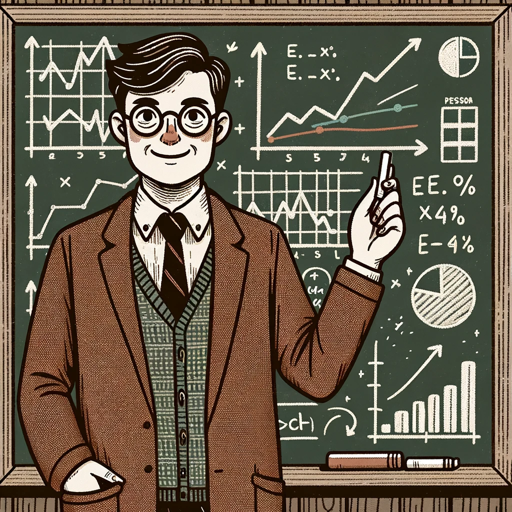História do Pensamento Econômico-Economic Thought History Guide
AI-powered Economic History Learning
Explicação de conteúdo
Criação de exercícios
Related Tools
Load More
Macro Economics Expert
AI Robot Macro Economics Expert

Expert Economist
Expert economist with access to real-time data.

Micro Economics Tutor
I respond to a wide range of Micro Economic topics. I can get step by step results from Wolfram Alpha.
Economic Educator
Interactive educational platform for learning economics.

Economics Professor
Acts as an applied economics expert with the teaching style of physicist Richard Feynman

AP Microeconomics Professor
Offers detailed explanations of economic theories, guidance on microeconomic principles, example problems and solutions, and insights into real-world economic scenarios.
20.0 / 5 (200 votes)
Introduction to História do Pensamento Econômico
História do Pensamento Econômico (HPE) is a specialized learning assistant designed to aid students and enthusiasts in the comprehensive study of economic thought history. Its primary function is to provide detailed explanations, create tailored exercises, and offer resources for in-depth learning. HPE covers various modules, from classical economic theories to contemporary economic models. It supports different learning styles by offering ultra-resumed, resumed, and detailed explanations. For example, when studying Keynesian economics, a user can select a brief overview or a comprehensive explanation, depending on their familiarity with the subject.

Main Functions of História do Pensamento Econômico
Detailed Explanations
Example
A user struggling with Adam Smith's theory can choose the detailed explanation option to understand the wealth of nations, division of labor, and the paradox of value.
Scenario
A student preparing for an exam on classical economic theories needs a deep dive into Adam Smith's principles. The detailed explanation function provides an in-depth analysis, ensuring the student grasps the concepts thoroughly.
Exercise Creation
Example
A user selects the module on Keynesian economics and requests multiple-choice questions. HPE generates questions and provides detailed explanations for each answer.
Scenario
An instructor wants to assess their students' understanding of Keynes's role of the state in economics. They use HPE to create a series of multiple-choice questions, helping students test their knowledge and identify areas needing further study.
Study Guides and Reading Plans
Example
HPE offers a reading plan for the week based on the course syllabus, ensuring the student keeps up with the required readings.
Scenario
A student follows a weekly reading schedule provided by HPE, covering essential texts by Keynes, Friedman, and other economists, ensuring they stay on track with their coursework.
Ideal Users of História do Pensamento Econômico
Economics Students
Undergraduate and graduate students in economics who need comprehensive support in understanding historical economic theories and their applications. HPE provides tailored explanations and exercises, helping them grasp complex concepts and prepare for exams.
Economics Enthusiasts and Self-Learners
Individuals with a keen interest in economic history who seek structured learning materials and exercises. HPE's detailed modules and flexible learning options cater to enthusiasts who want to deepen their understanding of economic thought without formal classroom instruction.

Guidelines for Using História do Pensamento Econômico
Visit aichatonline.org for a free trial without login, also no need for ChatGPT Plus.
Begin your exploration of the História do Pensamento Econômico by visiting the website aichatonline.org. You can access a free trial without any need for login or ChatGPT Plus subscription.
Select the desired module.
Choose from one of the nine modules available, each covering a distinct era or school of thought in economic history. This selection will tailor the content to your specific area of interest.
Choose your learning style.
Decide how you would like the information presented. Options include ultra summarized, summarized, or detailed explanations, each providing a different depth of content based on your familiarity with the subject.
Engage with exercises.
If you prefer hands-on learning, select from multiple-choice, true/false, or essay-style questions to test your understanding of the material. You can specify the module and the number of questions you want to practice.
Utilize additional resources.
Supplement your learning with external readings, videos, and other online resources provided within the platform. These resources can offer deeper insights and broader perspectives on economic theories and their historical context.
Try other advanced and practical GPTs
Mathematical Physics
AI-powered insights into complex physics.

VTEX IO Responsive Expert
Empowering VTEX developers with AI-driven insights

ElevenLabs ∞ Générateur de Voix IA & Free Voice AI
AI-powered voice generation for everyone

Poster Pro
AI-Powered Scientific Poster Design

PDF Translate
AI-Powered Document Translation

Cartoon
Transform your photos with AI magic.

Quantum Computing Problem-Solver
AI-powered quantum computing solutions

MiddleYears-GPT(IB MYP)
AI-driven assistance for MYP educators

Blog Enhancer
Enhance Your Blog with AI Power

SEO Generator Auto
AI-powered SEO for Redbubble

Sentient
Empower Your Ideas with AI

Cartoonize Family Photo
Turn your photos into charming cartoons with AI

- Academic Research
- Exam Preparation
- Historical Analysis
- Course Study
- Theory Comparison
Q&A About História do Pensamento Econômico
What is the main focus of the História do Pensamento Econômico?
The main focus is to study various economic theories from the late 18th century to the late 20th century. It aims to understand the historical context and development of these theories through the original texts of key economists and significant commentaries.
What are the nine modules covered in the course?
The nine modules include: Introduction to economic science and its history, Classical political economy of Adam Smith, Utilitarianism and marginalist theory, Thorstein Veblen and American institutionalism, Keynes and Keynesianism, Origins and developments in econometrics, Economic science during WWII and the Cold War, Mathematicization and economic models, and Post-Keynesian macroeconomics and recent developments.
How are the lessons structured?
Lessons are structured to include expository classes focusing on the scope of economic science, economic cycles, the role of the state, economic models, and developments in 20th-century economics, particularly econometrics and game theory.
What learning outcomes should students expect?
Students will be able to describe and locate major economic theories within the history of economic thought, compare and contrast theories from different economists, and organize economic data and evidence based on the theories learned.
Are there any prerequisites for the course?
While there are no strict prerequisites, a basic understanding of economic concepts and theories is beneficial. The course provides comprehensive guidance and resources for students to develop a deep understanding of economic history.